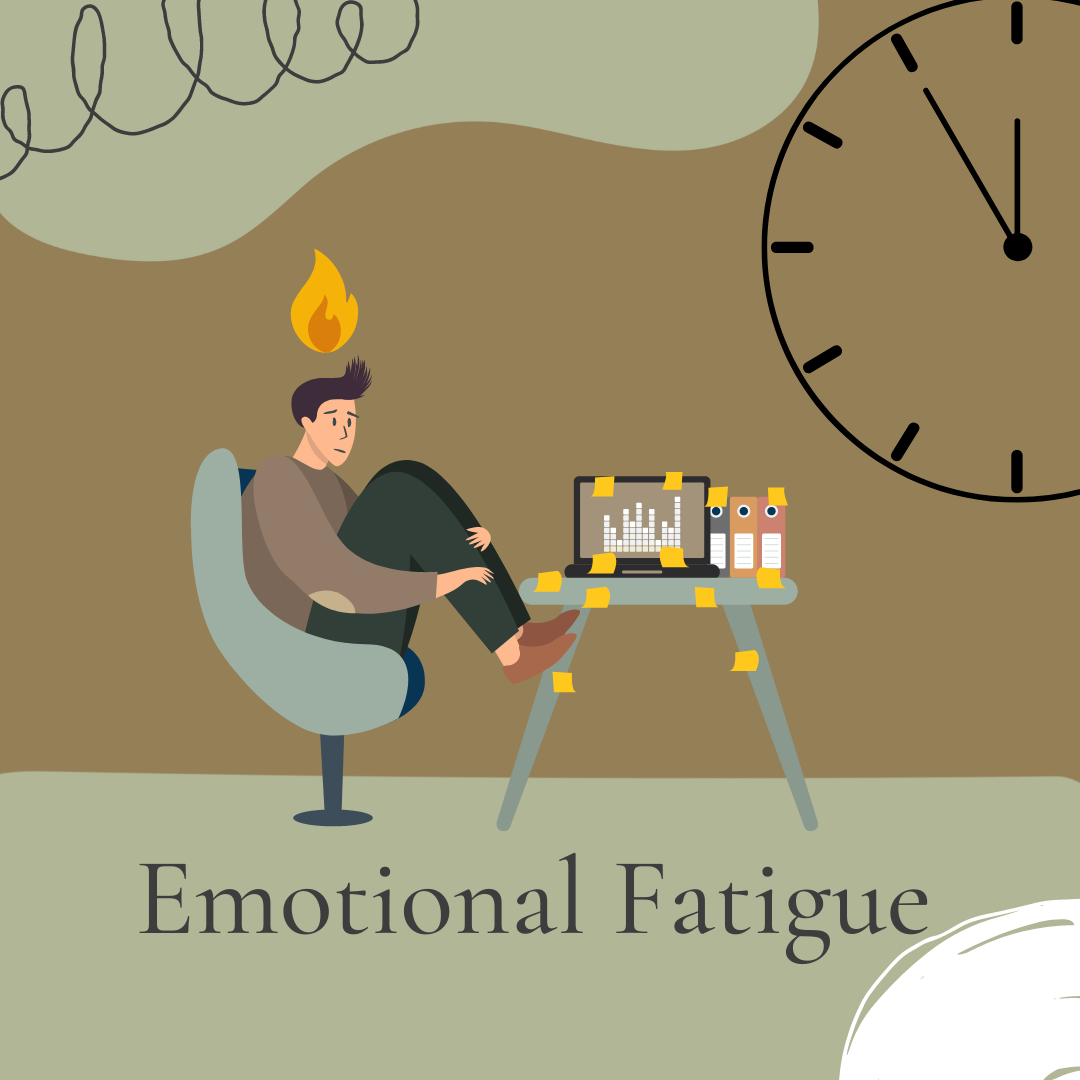
Compassion is one of the things that makes us human. Being able to care for your fellow person and recognize when someone is suffering and down on their luck can be a beautiful thing. But what if I told you that you can care too much? That too much compassion and empathy can really hurt you in your own health journey? You may not believe me, but its true. You may not have felt it yourself, but you’ve seen it around. Think back on the past few years. Remember how everyone was so ready to be done with COVID-19? It seemed like everyone was just fed up and over things, right? And there was a lot of talk about how the constant barrage of bad news has been impacting mental health across the USA? These are some examples of that compassion fatigue, and you shouldn’t have to feel guilty about it.
WHAT IS IT REALLY?
The real definition of compassion fatigue refers to the emotional baggage or strain that someone might get from working with people that feel at their worst. You are taking all of that energy in and giving that person you feel compassion for, a piece of you. If you find yourself in this position a lot, you may give too much of yourself away and take all of the burden on your shoulders. This is a heavy burden and you will get tired. You will not be able to give the love and compassion to the people in your life that you otherwise would like to. Your partner, friends, kids, family…
YOU MAY EVEN EXPERIENCE SOME OF THESE:
– Sleep Issues
– Emotional instability
– Troubles thinking and reasoning
– Changes in mood or behavior
– Isolation and depression
– PTSD
– Loss of self-worth
– Changes in worldview or spirituality
– Existential dread
– Anger towards these people you once felt compassion for or anger at casual events.
These things can make you feel guilty. Make you feel like a bad person. Why do you now resent that sick family member that really needs your help and support? It’s a horrible and damaging feeling that tons of people deal with, but there are things you can do to help this. Things can and will get better.
WHAT CAN I DO?
– Find someone to talk to. You may feel like the person that takes care of everyone else, but you have a system of people around you that are just waiting to hear from you. Find a friend or family member to talk to. If not, there are professionals that will gladly help you through this and work with you on developing healthy strategies.
– Understand that this is common. It’s something that happens. Nobody is immune from this, and we understand how you feel. Nobody thinks any less of you for reaching your emotional limits.
– Exercise and eat properly. This has been proven to help boost mood and feelings of self-worth. Its also a good outlet for negative emotions and for getting some of that baggage off of you.
– Get some sleep. Sleep is important for your physical and mental health. You can’t neglect that.
– Take some time off. Give yourself a chance to breathe. The world won’t stop if you take a few days or a week off. It is not only okay, its encouraged. Even Mother Teresa understood this and gave her nuns a mandatory full year off every 4-5 years. She said it was for the purpose of allowing them to heal from the effects of their care-giving.
– Develop some hobbies. Doing the activities you enjoy outside of work will help you recharge.
The bottom line is that you can’t continue to take care of people if you don’t also take care of yourself. If you feel like you owe that to the people you are compassionate about, great. But you really owe it to yourself as well.

